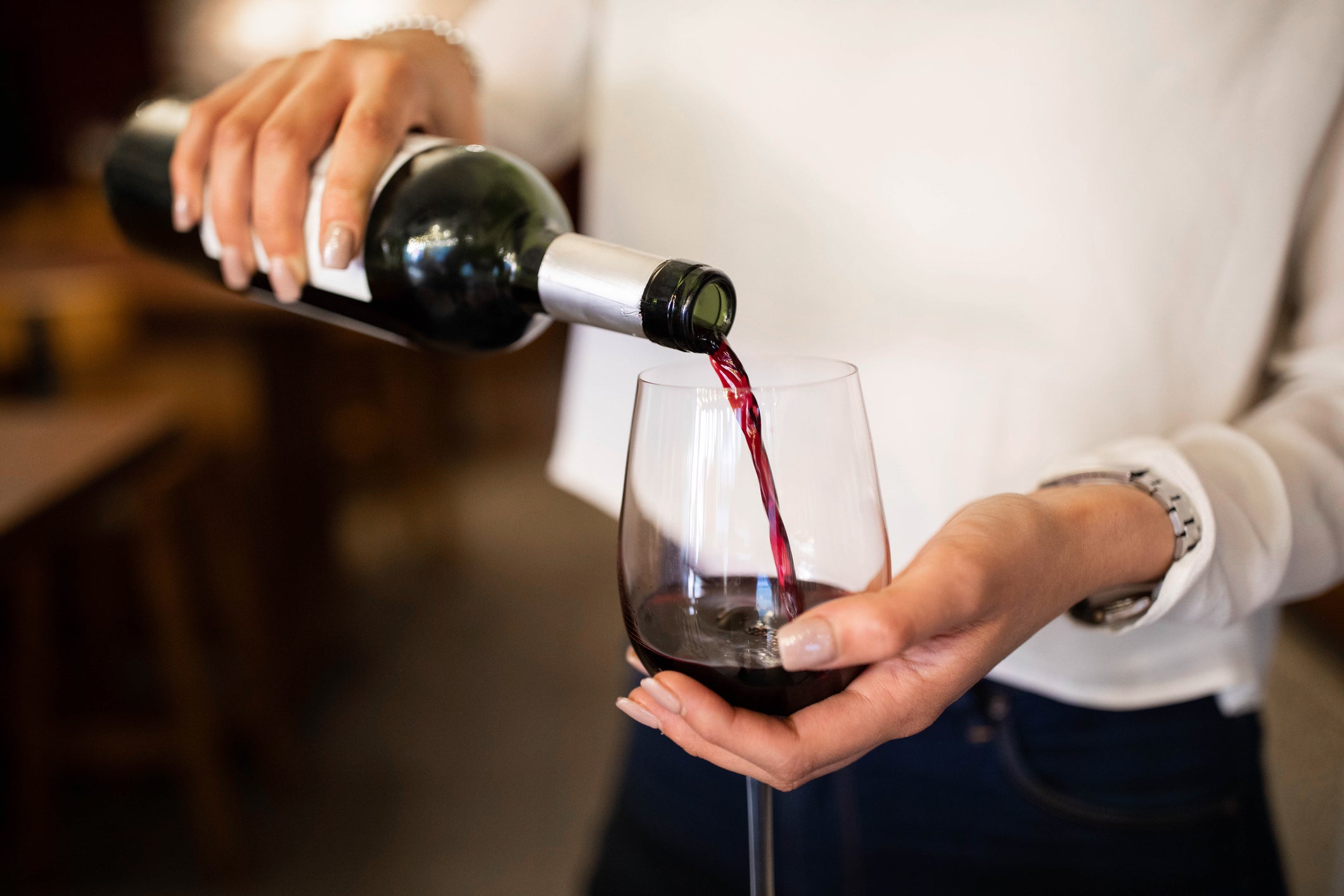After today’s alcohol duty freeze, I could celebrate with a £5 bottle of merlot... but I won’t
Yes, you can still get a bottle of red for a fiver, writes wine merchant Rosamund Hall, but when half of that is tax, it’s no wonder a decent bottle costs over a tenner


Chancellor Jeremy Hunt may have put a temporary halt on any rise in alcohol duty today, but don’t crack open the bubbly to celebrate just yet. The quest to find a great bottle of wine for a tenner remains as hard as ever. It would have been staggering if the chancellor had increased duty today, just months after the largest increase in alcohol tax for 50 years came into effect in August.
In the 13 years that I worked in independent wine retail, the price point that customers most regularly asked for didn’t change much – but unfortunately, the cost of wine has.
We definitely shouldn’t be toasting this freeze – the UK currently pays some of the highest tax in Europe on wine and spirits – and thanks to our chancellor we have an even more complicated sliding scale of taxation according to the alcohol by volume (ABV). This is a headache for consumers and retailers alike.
There has been worrying data released by the Wine and Spirit Trade Association (WSTA) that sales in spirits and wine have declined at an alarming rate over the past 28 days – 20 per cent for spirits and double digits for wine. This is traditionally one of the busiest times of the year for wine merchants like myself, so figures like this are alarming. The thing is, higher taxes on alcohol don’t serve to increase the revenue to the Treasury – it only punishes the consumer, and we’ve already had quite a beating.
We are in a cost-of-living crisis, and a nice drink at some point during the week is the sort of small luxury that many of us look forward to. I know one of my favourite moments of the week is preparing a feast on a Sunday for friends and deciding what to serve alongside it. It’s not lavish, or excessive – just convivial and warming during these increasingly darkening days. Inflation is soaring, the cost of glass bottles is explosively high, and transport costs have skyrocketed – not to mention all of the costs that hospitality and retailers face.
For wine consumers, the average bottle of red wine is charging towards the £8 mark. It currently stands at £7.72 according to the Office for National Statistics (ONS). Fifty per cent of an £8 bottle of wine is already made up of tax, so we shouldn’t be celebrating this freeze.
Our high duty rates create a depressing “race to the bottom” mentality around wine in our country. We make ourselves even less attractive to wine producers wanting to sell into the UK, and we will see an ever-deepening homogenization of the sorts of wine that are available to us. It is a bleak future full of large bulk tankers bringing in cheap, uninspiring plonk.
In the time that the Conservatives have been in power, successive chancellors have charged forward on staggering increases on alcohol duty. Beer duty has gone up 21 per cent, Spirits by 32 per cent, still wine by 58 per cent – and as we approach Christmas, you can lament the fact that duty on a bottle of 20 per cent ABV port has increased by a staggering 90 per cent.
In the meantime, what can you do to get more value for money from your wine? Unfortunately, only one thing – you have to spend a bit more. At some point we need to collectively accept that decent wine isn’t cheap. By decent, I’m not talking about classified growth bordeaux, or rare burgundy – more a solid red from the Rhone, or sauvignon from the Loire.
Yes, you can still buy wine for a fiver, but it will be filled with a list of ingredients that would take up most of my word count, and that you’d need a chemistry degree to understand. In other words, it’s not very good.
And before you call me out for being a wine snob, I’ll say it first: I am a snob about what I drink – and for good reason. In much the same way I choose not to buy battery-farmed eggs, I also choose to drink wine whose provenance I know. It is a luxury, and one that I’m prepared to pay for – and you should be too. But we shouldn’t have to have a huge percentage of the price of the bottle go straight to the Treasury.
If you’re spending £8 on a bottle of wine, approximately half of that is tax, and that’s before you’ve even factored in margin (for retailer, agent and producer) packaging and logistics. There’s only a few pence left for the actual wine itself. Get closer to £12-£15 for a bottle of wine, and you’re already getting a lot more wine for your money – and trust me, you really can taste the difference.
As you might expect, many of our European neighbours have little or no tax – I’m looking longingly at you France, Spain, Italy and Portugal (to name a few) – and they don’t have anywhere near the levels of public health concerns around alcohol. They’re wine-producing countries, but so are we – and we’re growing fast.
Yes, we will never compete in terms of volume of production, but high duty does nothing to encourage consumers to try our premium wines (that we’re now becoming pretty famous for internationally).
According to WineGB, the UK produced 12.2 million bottles in 2022 – this was a 130 per cent increase from 2017. They predict that this will more than double by 2032, with an estimated production of between 25 and 29 million bottles.
Staggeringly high taxation doesn’t support our grassroots production of wine and spirits. We need a radical overhaul on how we tax booze in the UK, or else we stand to become even more insignificant and limited than we already are.
Rosamund Hall (DipWSET) is a wine merchant and consultant
Join our commenting forum
Join thought-provoking conversations, follow other Independent readers and see their replies
Comments
Bookmark popover
Removed from bookmarks